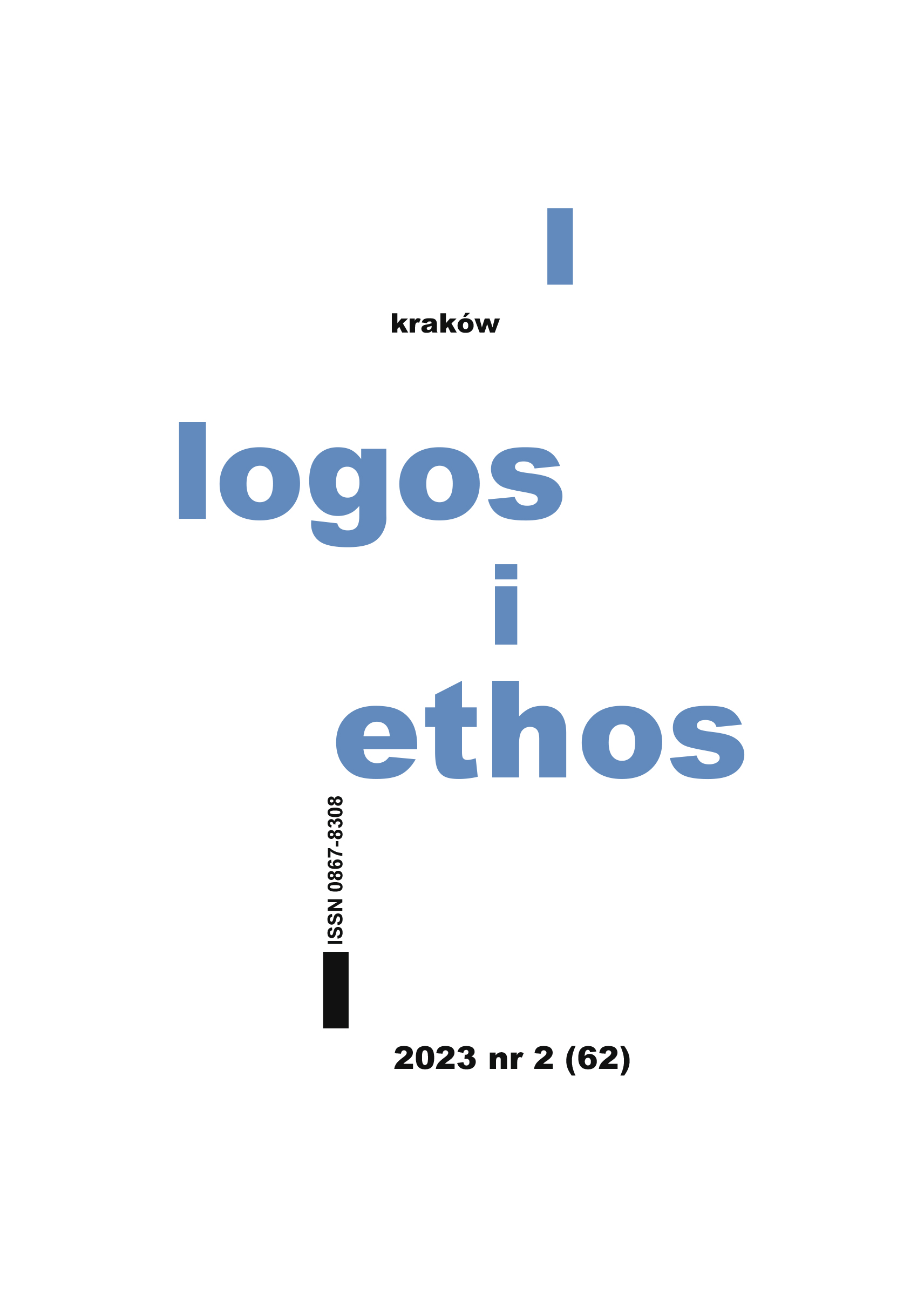Gods and people in literature and philosophy. God by the picture of human or human by the picture of god? Homeric vision of reality versus Heraclitus’ vision of reality
DOI:
https://doi.org/10.15633/lie.62202Słowa kluczowe:
filozofia religii, bogowie, religia, literaturaAbstrakt
The article deals with the theological issues of Homer and Heraclitus. The analysis of the works of Homer and the philosophical thought of Heraclitus serves to compare and contrast them extracting significant differences regarding the image of god and man. The author develops both literary and philosophical understanding of gods. She compares the man-god relationship in early Greek literature and philosophy. There is an interesting intrinsic tension in the literary tropes that can only be understood if the religious function of this literature is taken into account. The author tries to describe the vision of the world and the place of human beings in it in both sources: literature and philosophy. In philosophical writings, there can be seen a movement in the vision of the world structure: the gods become more inaccessible to humans, but humans gain the opportunity to become godlier if they follow a proper set of thoughts and actions proposed by philosophy. Religious poets were speaking of the past when the gods were approachable to people. Their fantasies were often mixed with old beliefs so that the divine-human world has as much wonder and eccentricity as dread. Philosophy conquers not only minds but also hearts, to convey them towards the ideal, bearing in mind the unattainable model of a virtuous man. While religion describes gods similar to humans, philosophy forges a new god-resemblant human figure.
Bibliografia
Banek K., Historia religii: religie niechrześcijańskie, Zakład Wydawniczy Nomos, Kraków 2007.
Banek K., Mistycy i bezbożnicy: przełom religijny VI–V w. p.n.e. w Grecji, Wydawnictwo Uniwersytetu Jagiellońskiego, Kraków 2007.
Burkert W., Ancient Mystery Cults, Harvard University Press 1987.
Burkert W., Raffan J., Greek Religion, Harvard University Press, Cambridge 1985.
Burnet J., Early Greek Philosophy, 1920.
Clarke M., Manhood and Heroism, in: The Cambridge Companion to Homer, ed. R. Fowler, Cambridge University Press, 2004, p. 74–90 (Cambridge Companions to Literature).
Cornford F. M., From Religion to Philosophy. A Study in the Origins of Western Speculation, Princeton University Press, Princeton 1992.
Flacelière R., A Literary History of Greece, Taylor and Francis, Somerset 2008.
Homer, The Iliad, transl. A. T. Murray, William Heinemann, London, Harvard University Press, Cambridge 1924, http://www.perseus.tufts.edu/hopper/text?doc=Perseus%3Atext%3A1999.01.0134%3Abook%3D3.
Homer, Iliad, eds. D. B. Monro, Th. W. Allen, Oxford University Press, 1920 (Oxford Classical Texts).
Jaeger W. W., Robinson E. S., The Theology of the Early Greek Philosophers. The Gifford Lectures, 1936. Reprint. Clarendon Press, Oxford 1947.
Griffin J., Homer on Life and Death, Clarendon Press Paperbacks, 1980.
Kahn C. H., The Art and Thought of Heraclitus, Cambridge University Press, 1979.
Kearns E., The Gods in the Homeric Epics, in: The Cambridge Companion to Homer, ed. R. Fowler, Cambridge University Press, 2004, p. 59–73 (Cambridge Companions to Literature).
Krokiewicz A., Studia orfickie. Moralność Homera i etyka Hezjoda, Aletheia, Warszawa 2000 (Dzieła, 2).
Loffe O. S., Razvitie civilisticheskoy mysli v SSSR, Leningrad 1975.
Mrówka K., Heraklit: fragmenty. Nowy przekład i komentarz, Scholar, Warszawa 2004.
Narecki K., Obraz a myśl filozoficzna Heraklita z Efezu, TN KUL, Lublin 1981.
Narecki K., Logos we wczesnej myśli greckiej, Redakcja Wydawnictw Katolickiego Uniwersytetu Lubelskiego, Lublin 1999. Rozprawa habilitacyjna. Katolicki Uniwersytet Lubelski.
Nilsson M. P., Fielden F. J., A History of Greek Religion, 2nd ed., repr. Greenwood Press, Westport (Conn.) 1980.
Osborne R., Homer’s Society, in: The Cambridge Companion to Homer, ed. R. Fowler, Cambridge University Press, 2004, p. 206–219 (Cambridge Companions to Literature).
The Cambridge Companion to Homer, ed. R. Fowler, Cambridge University Press, 2004 (Cambridge Companions to Literature).
Vernant J. P., Mythe et Société en Grèce Ancienne, Paris 1974.
West M. L., The East Face of Helicon. West Asiatic Elements in Greek Poetry and Myth, Clarendon Press, Oxford 1997.
Wrotkowski W., Αιών. Wieczność w teologii Heraklita, “Przegląd Filozoficzny. Nowa Seria” 16 (2007) no. 1, p. 21–32.
Zeller E., Outlines of the History of Greek Philosophy, Longmans, Green, London 1886.
Pobrania
Opublikowane
Numer
Dział
Licencja

Utwór dostępny jest na licencji Creative Commons Uznanie autorstwa 4.0 Międzynarodowe.
Autorzy publikujący w czasopiśmie udzielają jego wydawcy zgody o następującej treści:
- Autor zachowuje autorskie prawa majątkowe do utworu, a jednocześnie udziela wydawcy czasopisma zgody na jego pierwszą publikację w wersji drukowanej i wersji online na licencji Creative Commons Uznanie autorstwa 4.0 Międzynarodowe oraz zgody na wykonywanie opracowań, w tym przekładów.
- Autor ma możliwość udzielania zgody niewyłącznej na opublikowanie utworu w wersji, która ukazała się w czasopiśmie (np. zamieszczenia go w repozytorium instytucjonalnym lub opublikowania w książce), wraz z informacją o jego pierwszej publikacji w czasopiśmie.
- Autor może umieścić swój utwór online (np. w repozytorium instytucjonalnym lub na swojej stronie internetowej) jeszcze przed zgłoszeniem utworu do czasopisma.

